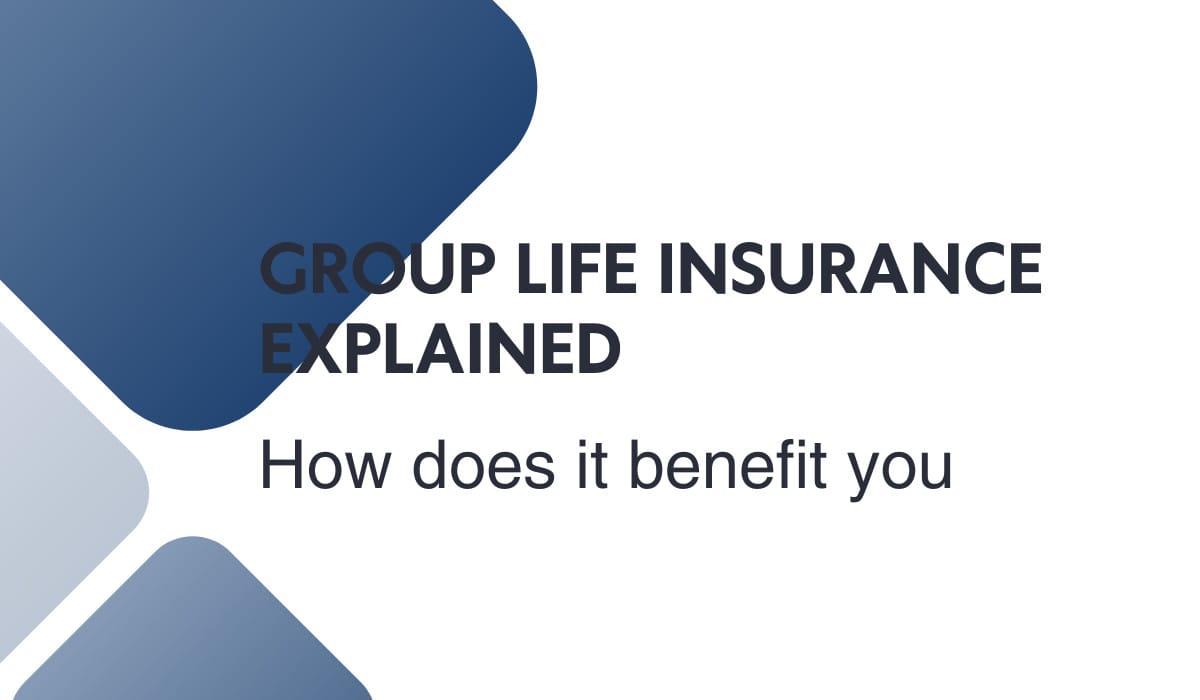The companies of this day are constantly on the lookout for ways to attract top talent while also enforcing the well-being of their workforce. And one of the most effective tools in their arsenal is group life insurance. This form of insurance not only offers peace of mind to employees but also brings a host of benefits to employers.
What is Group Life Insurance?
Group life insurance is a type of life insurance policy that covers an entire group of people, typically employees of a company or members of an organisation. Unlike individual life insurance, group policies offer coverage to all eligible members under a single contract, usually without requiring a medical exam. The coverage amount is generally a multiple of the employee’s salary or a fixed sum provided by the employer. You might be wondering why one would sign for such an offer, rather than just addressing their own insurance needs individually. Well, in the next section, that’s exactly what we’re going to be expanding on.
Benefits for Employees: More Than Just a Perk
Affordable or Free Coverage
One of the standout features of group life insurance is its affordability. In many cases, the employer covers the entire premium, or employees can opt to pay a nominal fee to increase their coverage. This makes it accessible to a wider range of people, including those who might not be able to afford individual life insurance policies.
No Medical Exams Required
For employees who might have pre-existing conditions or would face higher premiums with individual life insurance, group life insurance is a boon. Since it typically doesn’t require a medical exam, employees can secure coverage without the worry of being denied due to health reasons.
Easy Enrollment Process
Group life insurance enrollment is usually straightforward and hassle-free. Employees can sign up during their onboarding process or during open enrollment periods without dealing with the complexities of individual insurance applications.
Financial Security for Families
Group life insurance provides employees with a sense of security, knowing that their families will be financially supported in case of their untimely demise. This benefit often comes at no additional cost to the employee, making it an attractive part of their overall compensation package.
Benefits for Employers: A Strategic Advantage
Attract and Retain Top Talent
When a company offers their employees group life insurance as part of the benefits package, the employment offer grows into a more attractive endeavour. It demonstrates that the company cares about the well-being of its workforce, which can be a deciding factor for candidates choosing between multiple job offers.
Boost Employee Morale and Loyalty
Employees who feel valued by their employer are more likely to stay with the company long-term. By providing group life insurance, employers show that they are invested in their employees’ futures, which can foster a sense of loyalty and commitment.
Cost-Effective Solution
Group life insurance is generally more cost-effective for employers than providing individual policies to employees. When companies pool the risk, the cost is spread across a large group, making it an affordable benefit to offer.
Disadvantages: The Flip Side of Group Life Insurance
Now, let’s get to the other side of this debate. It is essential to be aware of a few of the limitations that group life insurance offers. And there are a few of them that extend to both the employees and the employer.
Limited Coverage
Group life insurance policies often provide a basic level of coverage that may not fully meet an individual’s needs. The coverage amount is typically a fixed sum or a multiple of the employee’s salary, which might be insufficient for families with larger financial responsibilities.
Lack of Portability
One of the major drawbacks of group life insurance is that it is usually tied to employment. If an employee leaves the company, they often lose their coverage. While some policies offer conversion options to individual plans, these can be more expensive and might not offer the same level of benefits.
One-Size-Fits-All Approach
Since group life insurance is designed to cover a broad group of people, it may not be tailored to individual needs. Employees with unique financial situations or those needing specific types of coverage might find group policies lacking.
Potential for Increased Premiums
In some cases, if an employer decides to pass on the cost of the premiums to employees, the group rate might increase over time. This could make the policy less affordable, especially for those who opted for higher coverage levels.
Things to note when undertaking Group Life Insurance
Understand Your Needs
If you find yourself wondering if group life insurance is what you truly need, stop and assess your financial needs. Consider factors such as your family’s financial obligations, outstanding debts, and future expenses like education or retirement. This will help you determine if the group life insurance coverage offered by your employer is sufficient or if you need to supplement it with additional individual policies.
Compare with Other Options
Before deciding to take a plunge, take a few days to compare the group life insurance policy with other available options. This includes looking at individual life insurance policies to see if they offer better coverage or terms. Remember, group policies are generally more affordable, but they might not meet all your needs.
Review Your Employer’s Offering
If you’re an employee, start by reviewing the group life insurance policy offered by your employer. Look into the coverage amount, premium costs (if any), and any additional benefits that might be included. Don’t hesitate to ask your HR department for details or clarification if needed.
Keep Your Beneficiary Information Updated
Once you’ve opted to secure group life insurance, be sure to keep your beneficiary information up to date. Life events such as marriage, the birth of a child, or divorce should prompt you to review and, if necessary, update your beneficiary details to ensure your benefits go to the right person.
Consider Portability Options
If you’re leaving your job, check if your group life insurance policy offers portability options, allowing you to convert your group policy into an individual one. While this can be more expensive, it ensures continuous coverage during job transitions.
Conclusion
For employees, group life insurance provides peace of mind, financial security, and an easy entry point into life insurance. For employers, it serves as a strategic advantage in attracting and retaining talent, boosting morale, and enjoying cost and tax benefits. In the end, group life insurance is more than just a safety net; it’s a testament to the enduring bond between workers and their employers, a statement of faith from a company to their most valuable asset – its people.







